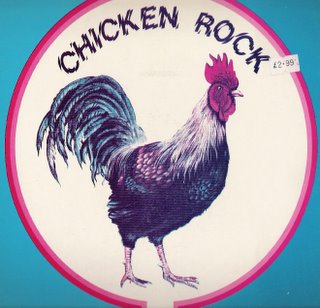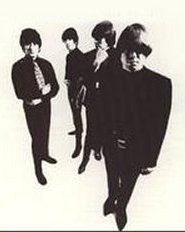
An LP found some years ago in Brick Lane flea market. Nigerian highlife on the Phonodisk label from the 80's one assumes from the album title "Page One '81".
Side Two here with the tracks as follows -
1. Anioma
2. Adura
3. Mama Sweet Papa Super
Remembering Eddy Okonta, the Obi of trumpet
By Benson Idonije
"IF Eddy Okonta, the late great trumpeter and highlife musician were still alive, today's musicians would be learning the technique of articulating 'rhythm' as an essential musical component at his feet. While he lived, he pretty well appreciated the fact that the main essence of African music is 'rhythm' and he used it to full advantage, thoroughly Africanising his own brand of highlife in the process.
He had served an initial apprenticeship with the Sammy Akpabot Sexlet, an aggregation that revolved this same name even as it increased or diminished with time. He was there with the late Oba Funso Adeolu on auto and tenor saxophones. He enjoyed sharing solos with him while bandleader Akpabot himself provided an ideal background for highlife and dance music to blossom with his dexterity on the vibraphone, an instrument which only Akpabot could play at the time in the whole of West Africa.
As an instrument, the vibes has a special way of resonating sounds and floating them through harmonies and arrangements. But Eddy's high notes helped to put all the reverberation in check for dancing and easy listening.
Eddy later served a long term of apprenticeship with the late Bobby Benson of Africa, this time culminating in outstanding professional musicianship, with proficiency in arranging and composing. He not only put the final polish to his accomplishment with the Bobby Benson Jam Session where he stood out the way Chief Bill Friday and Zeal Onyia before him did, his artisting now reached its apotheosis in the area of improvisational design. He began to use the vast resources of his creativity to construct solos that contained revolutionary melodic language and rhythmic subtlety.
As one of the pioneering big bands in the country, the Bobby Benson Jam session offered all its graduates a well rounded musical experience and discipline as they were exposed to all dance music forms including swing, Latin American , Jazz, Afro Cuban, the ball room type that dominated the colonial era with the music of Joe Loss and Victor Sylvester, and all."
Eddy Okonta - Side Two

















